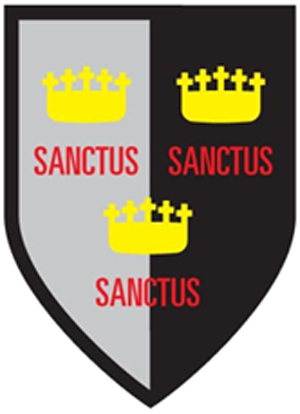Intent
At All Saints Primary School, we are GEOGRAPHERS!
We want our children to develop a love for geography, encouraging them to dream big and aspire to become cartographers, town planners, conservationists, or weather forecasters.
Our aim is to provide a meaningful platform for exploring, appreciating, and understanding the world we live in and how it has evolved. Through the study of geography, we empower pupils to examine the relationship between the Earth and its people by exploring place, space, and environment.
At All Saints, students will learn essential skills in locational knowledge, gaining an understanding of how people and places are interconnected within the broader context of our world. We also intend for children to become passionate and knowledgeable about our local community and beyond by engaging in practical experiences and fieldwork activities that enhance their learning.
Implementation
At All Saints Primary School, our geography curriculum aligns with the National Curriculum, organizing attainment targets under four key strands:
- Locational Knowledge
- Place Knowledge
- Human and Physical Geography
- Geographical Skills and Fieldwork
Our geography scheme features a clear progression of skills and knowledge across these strands for each year group. The progression document outlines how skills develop, ensuring that all attainment targets are securely met by the end of each key stage. Key geographical concepts are integrated throughout all units, rather than being taught in isolation.
Our National Curriculum coverage document specifies which units address each attainment target and strand for Key Stages 1 and 2. It also reflects the Development Matters statements and Early Learning Goals met within each EYFS activity.
We utilize a spiral curriculum that revisits essential knowledge and skills with increasing complexity, allowing pupils to reinforce and build upon their prior learning. Locational knowledge is specifically reviewed in each unit, as we believe this strengthens children’s understanding of key concepts like scale and place in geography.
The two EYFS units establish a solid foundation for geographical skills, knowledge, and enquiry, preparing children for a smooth transition into Key Stage 1 geography. These units feature a mix of adult-led and child-initiated activities that can be tailored to fit Reception class themes or topics.
Cross-curricular links are woven throughout each unit, enabling children to connect and apply their geography skills to other areas of learning. Our enquiry questions guide Key Stage 1 and 2 units, fostering a deep understanding of geographical concepts as pupils engage with open-ended questions that encourage genuine exploration. This approach allows children to learn how to collect, interpret, and represent data using geographical methodologies, making informed decisions through their geographical knowledge.
Each unit includes elements of geographical skills and fieldwork to ensure regular practice. The units follow an enquiry cycle that encompasses question, observe, measure, record, and present, in line with National Curriculum requirements. This structure helps children learn how to define an area of enquiry, plan data collection using various methods, capture data, and present their findings to diverse audiences.
Fieldwork opportunities range from smaller tasks on the school grounds to larger-scale visits that investigate physical and human features. By developing fieldwork skills in familiar settings, pupils consolidate their understanding of various methods and gain confidence in evaluating these methodologies. This approach ensures that fieldwork is accessible and regular, helping children develop a thorough understanding of their locality while comparing it to other places.
Lessons incorporate a variety of teaching strategies, including independent tasks, paired work, and group activities, alongside practical, computer-based, and collaborative tasks. This variety engages all learners, accommodating different learning styles. Each lesson provides guidance for teachers on adapting instruction to ensure all pupils can access learning, with opportunities to stretch advanced learners as needed. Knowledge organisers for each unit support students in building a foundation of factual knowledge, encouraging recall of key facts and vocabulary.
Geography is timetabled as a focus each half term, with geographical concepts, knowledge, and skills integrated into other subjects, such as history and science, where appropriate. Regular audits of pupil and staff feedback will be conducted to continuously enhance our curriculum.
Impact
An enquiry-based approach allows class teachers to assess children against National Curriculum expectations for geography. The impact of our geography scheme is monitored through both formative and summative assessment opportunities.
Each lesson includes assessment tasks for teachers to evaluate children against learning objectives. Additionally, each unit concludes with a quiz and knowledge catcher to assess understanding. Opportunities for pupils to present their findings using their geographical skills are integral to the assessment process. Our goal is for children to leave All Saints equipped with a range of skills and knowledge that enable them to study geography confidently at Key Stage 3. We aspire to inspire our pupils to become curious geographers who respect and appreciate the world around them, understanding the connections between human and physical geography.
Expected impacts include:
- Comparing and contrasting human and physical features to describe and understand similarities and differences between various places in the UK, Europe, and the Americas.
- Naming, locating, and understanding the significance of physical elements of our world, including processes related to climate, biomes, natural disasters, and the water cycle.
- Understanding human land use for economic and trading purposes, and how the distribution of natural resources shapes societies.
- Developing an appreciation for the impact of physical geography on human evolution and the reciprocal influence humans have on the environment.
- Cultivating a sense of location and place in the UK and beyond, utilizing compass directions, grid references, symbols, and keys on maps and digital tools.
- Identifying how various globe elements, including latitude, longitude, and time zones, influence our understanding of geography.
- Presenting and answering geographical enquiries using selected methodologies, collected data, and digital technologies.
- Meeting the ‘Understanding the World’ Early Learning Goals by the end of EYFS, and achieving National Curriculum expectations for Geography by the end of Year 2 and Year 6.
At the end of each term, children’s work will be monitored and moderated to assess their progress and learning.
